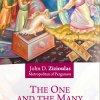Stella Louis Jatras (nee Katsetos) from Camp Hill, PA, was born in Poughkeepsie, New York, as the fourth and youngest daughter of Louis (Leonidas) and Marina Katsetos, originally of Sparta, Greece, and later of Harrisburg and Carlisle.
Stella was quite literally a daughter of Sparta - and her father's name was Leonidas, no less. As Julia Gorin noted, she was Sparta, truly worthy of that heroic heritage. Axia!
In addition to the U.S. Department of State, her professional work included service with the U.S. Department of Defense, NASA and the Veterans Administration.
In 1953, she married George Jatras, also the offspring of Greek immigrant parents, and began a long and varied life as the wife of a career U.S. Air Force Officer.
As a career military officer's wife, Stella traveled widely and lived in several foreign countries where she not only learned about other cultures but became very knowledgeable regarding world affairs and world politics. She lived in Moscow for two years, where she worked in the Political Section of the U.S. Embassy. She also lived in Germany, Greece, and Saudi Arabia. Her travels took her to over twenty countries.
.Stella Jatras was a woman of intelligence, knowledge, class, and dignity. She was also a kind and thoughtful human being and a tireless advocate for the truth. To say that she was a great friend of the Serbs is an understatement. I can only hope that she knew how much she was appreciated.
Prior to the civil war in Bosnia (1992-95), Stella’s primary interest in foreign affairs centered on the Soviet Union and the issues of the Cold War. She and her husband lectured on their experiences in the Soviet Union at the Naval War College, the Air Force Command and Staff College, and to many military and civic groups.
With the breakout of the war in Bosnia, Stella was appalled by the bias of the Western media, especially in the United States, and began her efforts to present to the American people a more accurate view of that tragic situation. She later expanded her commentaries to numerous foreign and domestic issues, with her letters and articles published in the Patriot-News, the Washington Times, the Washington Post, the Arizona Republic, and the Los Angeles Times, as well as a number of magazines and periodicals. In addition, her writings have had worldwide distribution via the Internet.
For the past two decades, even as many Serbs stayed silent in the face of a bigoted campaign of lies and libel, Stella and her family took a courageous stand for truth and justice, never wavering, never losing faith.
Stella’s efforts to set out the real story of the Balkans wars (Bosnia and Kosovo) were warmly appreciated by the Serbian community, where she is particularly well known. In September 1998, a luncheon was given in her honor in Washington, D.C., by the Serbian community of the National Capital Area. In June 1999, Mrs. Jatras was the main speaker at the 54th Annual Serbian Day Celebration of Canadian Serbs in Niagara Falls, Canada. In February 2004 she was presented with a "Gramata" (formal certificate) by the Serbian Orthodox Church.
She passed away on 15 June 2013 at Holy Spirit Hospital in Camp Hill at her 81st year.
Photo by Aleksandra Rebić





